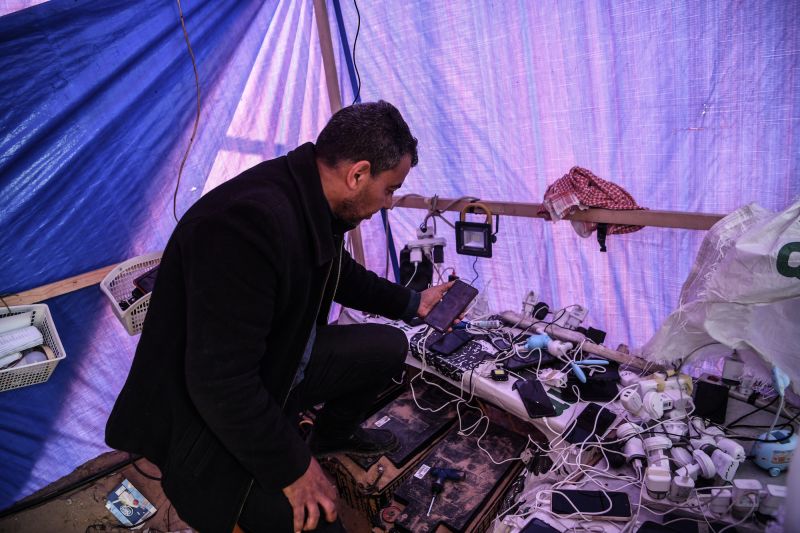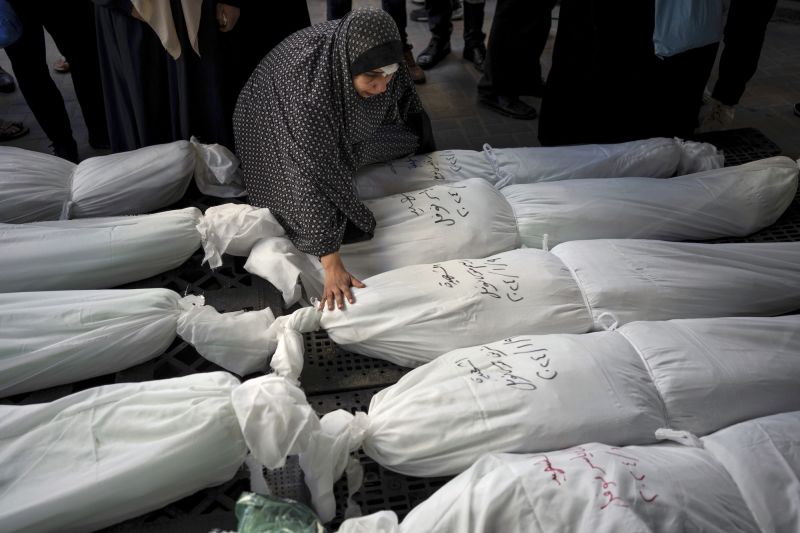
Gaza Communications Blackout: A Critical Crisis Unfolding

A near-total communications blackout in Gaza has created a humanitarian and emergency services crisis, affecting the lives of thousands of Palestinians. The blackout, now in its second week, has hampered essential communications and posed significant challenges for aid workers and journalists. The causes and implications of this blackout are shrouded in uncertainty, raising concerns about the safety and well-being of the people in Gaza.
The Prolonged Blackout: Impact and Challenges
The near-total communications blackout in Gaza, which has persisted for over a week, has led to a critical humanitarian crisis, severely impeding the operations of emergency services and aid organizations. The blackout, the longest of its kind during the ongoing conflict, has disrupted both physical and wireless data connections, as well as mobile phone usage, exacerbating the challenges faced by Palestinians in accessing essential services and information.
A Palestinian man produces electricity with solar panels in a makeshift tent in which Palestinians charge their phones cheaply, in Rafah, Gaza, January 17, 2023.
Juliet Touma, spokesperson for UNRWA, emphasized the unprecedented nature of the blackout, stating, 'It's almost impossible to do the work that we're supposed to do.' Aid workers, such as Jamal al Rozzi, have highlighted the life-threatening consequences, expressing the difficulty in accessing ambulances and emergency healthcare services, especially during night-time bombings. The blackout has effectively left the population vulnerable and isolated, compounding the dangers faced by individuals in need of urgent medical assistance.
Palestinians mourn their relatives killed in the Israeli bombardment of the Gaza Strip, outside a morgue in Rafah, southern Gaza, Wednesday, Jan. 10, 2024. (AP Photo/Fatima Shbair)
The blackout has also severely hindered the ability of journalists and aid workers to communicate effectively, with limited alternatives available through international or electronic SIMs near the Israeli or Egyptian borders. The absence of reliable communication channels has significantly impacted the flow of critical information from Gaza, hindering the ability to report on the ground realities and provide timely assistance to those in need.
Potential Causes and Consequences
The blackout, now in its ninth occurrence since the conflict began, has raised suspicions regarding deliberate actions to sever Gaza's communications. While the exact cause of the blackout remains undetermined, indications point towards physical damage to the fiber lines connecting Gaza to Israel. Alp Tolker, the director of Netblocks, highlighted the challenges in attributing the outages to specific causes, emphasizing the multifaceted nature of the disruptions.
The blackout has had devastating effects, leading to the loss of lives of telecoms workers and impeding the delivery of essential supplies to hospitals. Hisham Mhanna, a spokesperson for the International Committee of the Red Cross, expressed the immense challenges faced by humanitarian organizations in operating without adequate communication infrastructure. The blackout has not only complicated mission planning but also heightened the risks faced by aid workers, making it increasingly difficult to ensure the safety and well-being of the affected population.
The absence of communication has left Palestinians both inside and outside Gaza in a state of uncertainty, unable to ascertain the well-being of their separated family members. The blackout has compounded the emotional distress and anxiety experienced by individuals, adding to the already devastating toll of the conflict.
Response and Reflection
The blackout has prompted international scrutiny and condemnation, with accusations leveled against Israel for deliberate actions to disrupt Gaza's communications. While Israel has not directly addressed these allegations, the blackout has underscored the challenges faced by Palestinians in accessing essential services amidst the ongoing conflict. The blackout has been described as a consequence of the active war zone in Gaza, as stated by the IDF, further complicating the already dire situation.
The recurring nature of the blackouts has also drawn attention to the broader implications for the safety and well-being of the population. The uncertainty surrounding the blackout and its causes has raised concerns about the vulnerability of Palestinians and the need for immediate measures to restore essential communication infrastructure. The blackout has highlighted the critical role of communication in ensuring the safety and coordination of humanitarian efforts, urging a concerted response to address the pressing challenges faced by the people of Gaza.
As the blackout continues to unfold, the urgency of finding sustainable solutions to restore communication in Gaza cannot be overstated. The blackout has not only disrupted daily life but has also deepened the existing humanitarian crisis, necessitating urgent action to safeguard the well-being and safety of the affected population.















